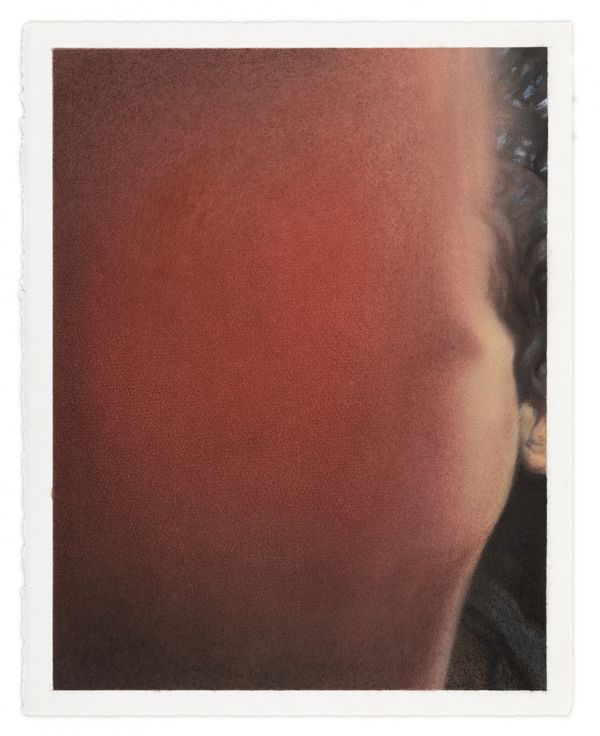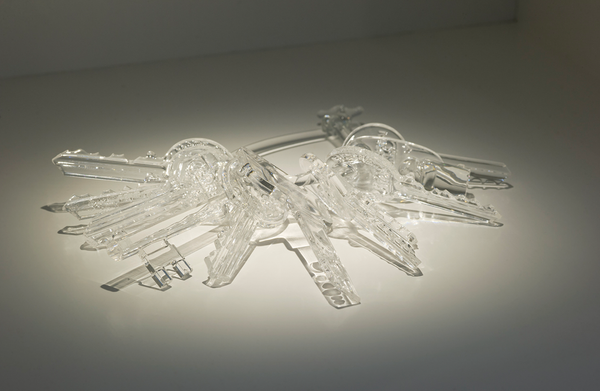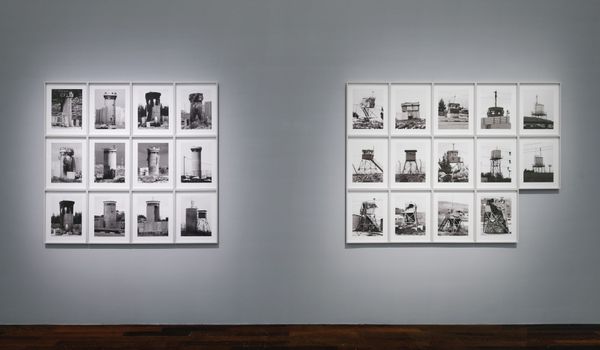Abitare Il Tempo by Taysir Batniji at Palazzina dei Giardini
-
Opens21 Nov 2025
-
Ends15 Feb 2026
-
Link
-
Author
- Location Modena, Italy
Curated by Daniele De Luigi, it is the first Italian retrospective of the Palestinian artist Taysir Batniji.
Overview
A bunch of glass keys, symbolically recalling homes that no longer exist, the photographic series on military watchtowers, an abstract work created by reworking the distorted images of video calls with distant relatives. These are just a few examples of how Taysir Batniji, one of the most significant artists of the Palestinian diaspora, has tackled the theme of exile over the years. A continuous dialogue between two cultures, yet one where the sense of belonging to his native land remains strong—an identity and memory in which the public universe and the private sphere, presence and absence, visibility and invisibility, are poetically combined.
Taysir Batniji is a Palestinian artist whose work is deeply marked by his personal experiences and by those often tragic of his homeland. The specificity of his work arises from the encounter between the languages and techniques of contemporary art, which he employs to create his pieces, and the themes tied to a country that has been in conflict for a century in its struggle to affirm its own identity.
Batniji’s artistic practice makes use of various media: photography, video, drawing, painting, sculpture, installation to give life to works imbued with a sense of impermanence and fragility, exploring the boundary between the visible and the invisible, the material and the immaterial, presence and absence. Through strategies such as shifting meaning, moving from the concrete to the abstract, repetition, and play, Batniji transforms the experience of things and offers a poetic, often bitter, perspective on reality.
The exhibition path in the Palazzina dei Giardini Ducali, his first solo show in an Italian institution, recounts the different ways in which the artist confronts his obsession with everyday objects and traces, attempting to mend pain and trauma. His trajectory, to quote the words of the great Palestinian poet Mahmoud Darwish whom he particularly loves can be read as a Diary of Ordinary Sadness, which by preserving memory and at times making use of irony, takes on a salvific value.
Batniji’s work, while not seeking to play a political role and aspiring instead to a universal dimension, remains inseparable from the collective tragedy of the Palestinian people especially today, as the violence in the Gaza Strip has given rise to a global movement in which the Palestinian cause has become a symbol of the struggle for rights, freedom, and human dignity. For Batniji, “inhabiting time” is a way of responding to the impossibility of inhabiting space, giving shape to a dimension in which the present, the roots, and the future coexist.


